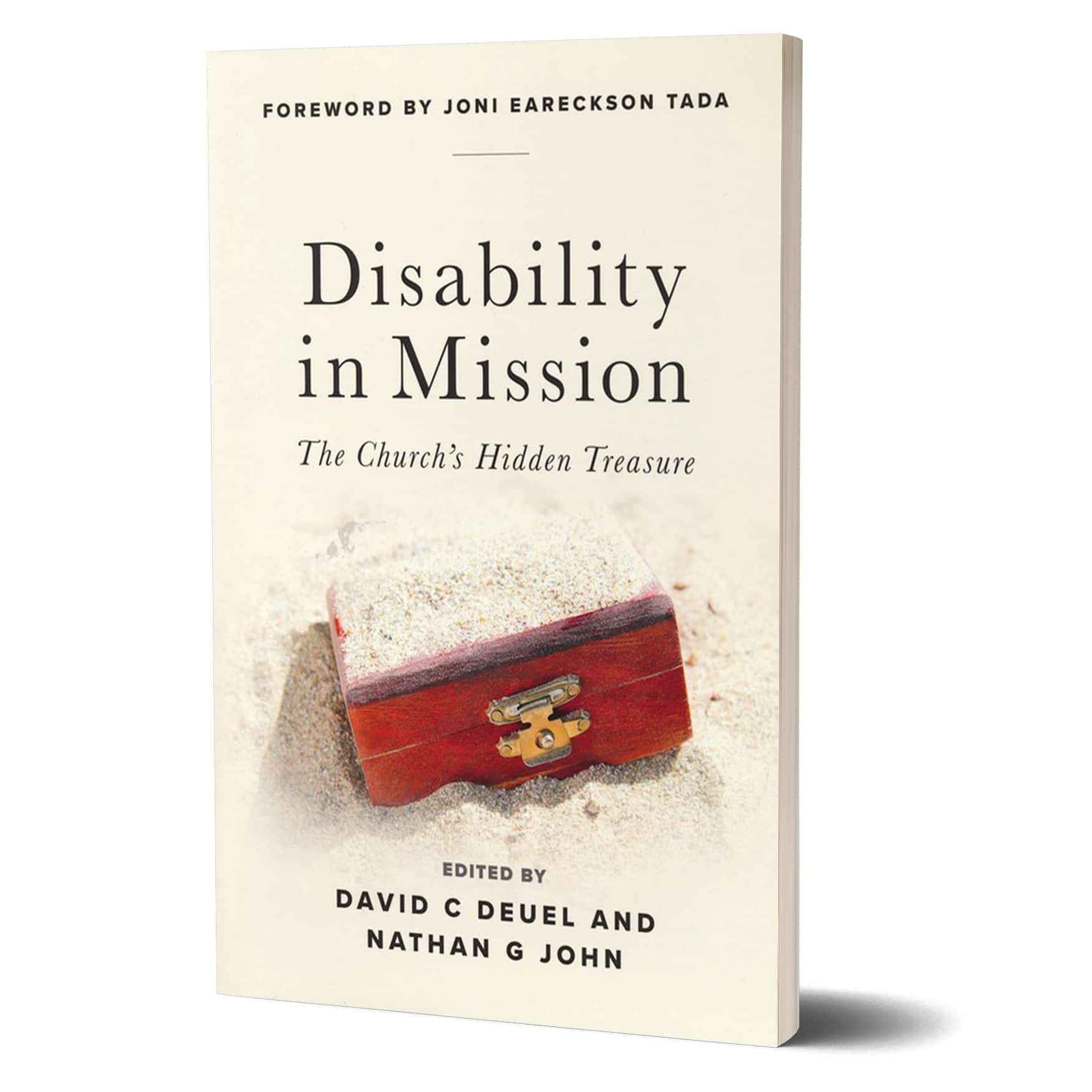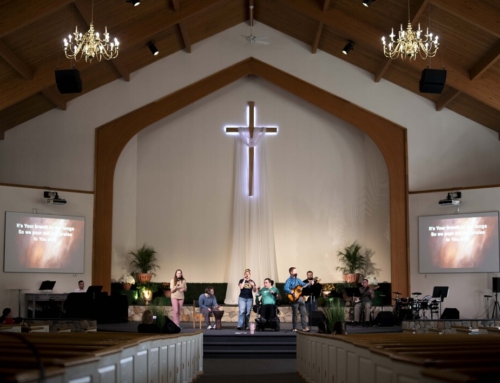Adam’s Song

What on earth was going on? A noise I had never heard before came from the back seat of the car I drove for the local school bus garage.
Adam, a young man with Down syndrome, was doubled over in his seat, sobbing, and when he looked up, I could see his face soaking wet from the outburst of tears.
Adam took daily rides with me to and from a day center for older students with significant special needs. He was completely nonverbal and responded little to anything I said. When I spoke to him, he might look me in the face for a brief moment, but never for long. I knew he lacked control of many bodily functions.
And so, looking at him now in the back seat, I realized he was helpless to clean himself up. I pulled the car over on the side of the highway, took out some tissues, and got him ready for the rest of the ride home.
What had started these sobs? Chills ran down my spine when I realized what must have happened. I’d been listening to “Jesus, Lover of My Soul” in the car as I drove. It could only be that through the praise song, Adam responded to the presence of God deep in his spirit. With this new clarity, I prayed with Adam there along the road. he responded with a faint smile. He gazed straight at me with a brief twinkle in his eye before the mental limitations that gripped Adam’s life took his thoughts off again into another world only known to God and Adam; one I could not enter.
I’d always liked my daily bus duties with Adam, even though most days passed with only minimal interactions.
Sometimes I’d say, “Adam, I’m speaking to your spirit right now” and then share salvation scriptures and model prayers of response. I would use those car rides to pray for him, too, both aloud and silently. Sometimes I wondered if it was a waste of time. Except for an occasional glance or smile, I saw no visible reaction to know whether he was receiving or responding. Yet I continued in faith, and was rewarded immensely that March day when a worship song brought him to tears.
Adam was not the first person who I’d been so intentional with regardless of the lack of visible response. Since God has made us spirit, soul, and body, I’ve believed that regardless of a person’s physical or mental disabilities, his or her spirit is wholly able to respond to the Word and Spirit of God. Over the years, I’ve shared the salvation message with elderly patients with Alzheimer’s, people with mental disabilities much like Adam, and even individuals in comas, believing God could communicate with their spirits, ministering to them and bringing salvation to them. Not always, but many times, I have witnessed evidence of the Holy Spirit moving directly on the heart of someone who seemed unable to engage.
The first time I experienced the faith to do this kind of evangelism was early in my walk with Jesus. As an Assistant Staff Forester with the Ohio Department of Natural Resources, my supervisor suddenly contracted Alzheimer’s, was forced to retire, and quickly deteriorated. A few others from the staff visited him in a nursing home and brought back startling reports about how much his symptoms had progressed in just a matter of a few short months.
“Eliot didn’t even know me,” one said.
“He’s just a little bag of bones there in the bed, totally out of it,” reported another.
Prior to the onset of the disease in his life, I had a good working relationship with Eliot. His years of experience at the Department and his seasoned, gruff wisdom was perfect for tempering my youthful, know-it-all attitude.
I found it hard to believe the negative reports about his health so soon after his retirement. I felt an urgency from the Holy Spirit to go see him, to let him hear once more that he could be born again and receive an assurance of eternal life.
When I entered his room, I realized that the “bag of bones” description was hardly an exaggeration. Yet Eliot stared at me wide-eyed, making grunting sounds as I took his hands and began to talk to him.
He seemed to really strive to connect with me. When I took his hands, he made great effort to reach upward towards me, looking at me directly, and continuing to make the only grunting sounds he could. From somewhere inside, an idea rose up, and I started praying out loud.
“Lord, you’ve given Eliot life and breath yet on this earth, and with every breath you give hope, so I ask you to help me speak right to his spirit. And Satan, you’re not going to interfere with this time I have with Eliot, in Jesus’ name.”
I wasn’t sure if what I had just prayed was crazy or not—I was still new to the Christian life!—but it came out of me in a spontaneous prayer born out of God’s love for this man.
Eliot was suddenly big-eyed and alert and so while I held his hands, I started explaining how a person is saved and can be assured of God’s forgiveness and receive his gift of eternal life. I spoke Scripture after Scripture. Then by faith, I told Eliot he could pray from his spirit in response. “God doesn’t need your voice or brain,” I told him, and I led him in a sinner’s prayer.
As soon as the “Amen” rolled from my lips, Eliot relaxed back into his bed, lost all awareness of me, and drifted off to sleep. As I left, I wondered if what I had done was crazy, but even as a new Christian, I had a sense that the Holy Spirit had met us.
A few days later, news hit our office that Eliot had passed away. During calling hours I spoke with his wife, who expressed relief that her husband’s suffering was over. When I shared with her that I had visited only a few days ago, and how he had been so alert and focused for those few moments, she was astonished.
“That’s impossible!” she responded. “He hasn’t acknowledged me or anyone else in the room for two months.” I dropped the subject out of care for her in her loss, yet I marveled even more about what God had done in that nursing home room.
Through these varied experiences, I’ve come to understand that a disability or deterioration of the mind is a temporal condition, not an eternal one. These limitations are not the core of who a person is. As Christians who believe people are spiritual beings who will live forever–whether in heaven or in hell—then we must acknowledge that just as the spirits of Adam and Eliot moved and responded in the spiritual realm, there are many others who are waiting to hear the Spirit of Truth guide them into truth (John 16:13).
So fellow Christians, speak the Word of God in faith! God may use you to make the words of Psalm 150:6 ring all the more true: “Let everything that has breath praise the Lord!”
Written By—Jack Hempfling
Jack Hempfling is a pastor in western New York. He is also the author of the book Before You Go: Forty Days of Devotions for a Short-term Mission.

Disability in Mission
Disability in Mission: The Church’s Hidden Treasure outlines a radical change in approaches to missiology, missions, and praxis for the twenty-first-century global cultural context. It explores a pattern whereby God works powerfully in missions through disability and not in spite of it.





